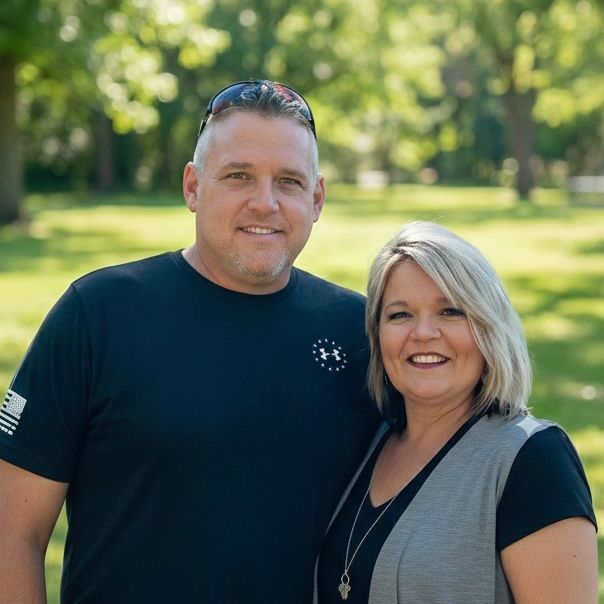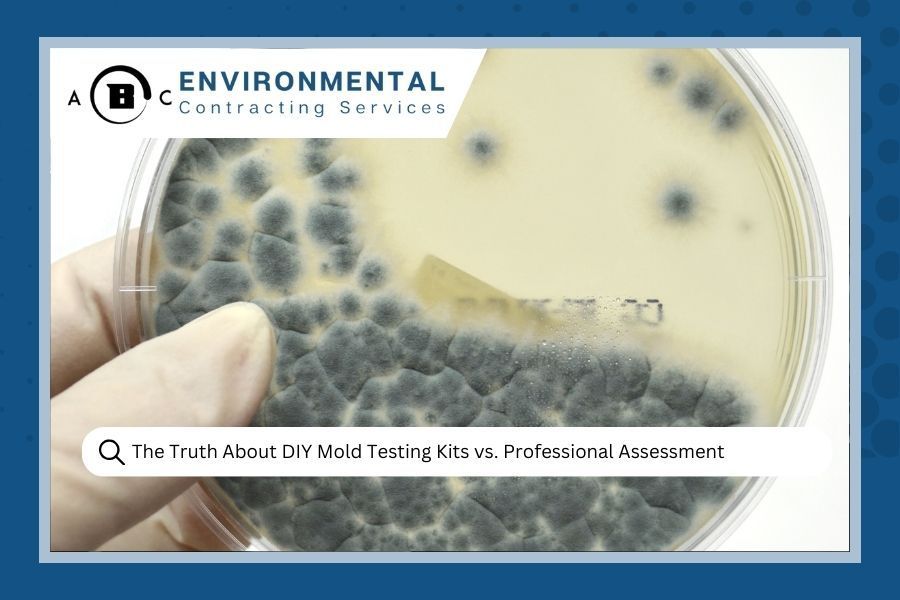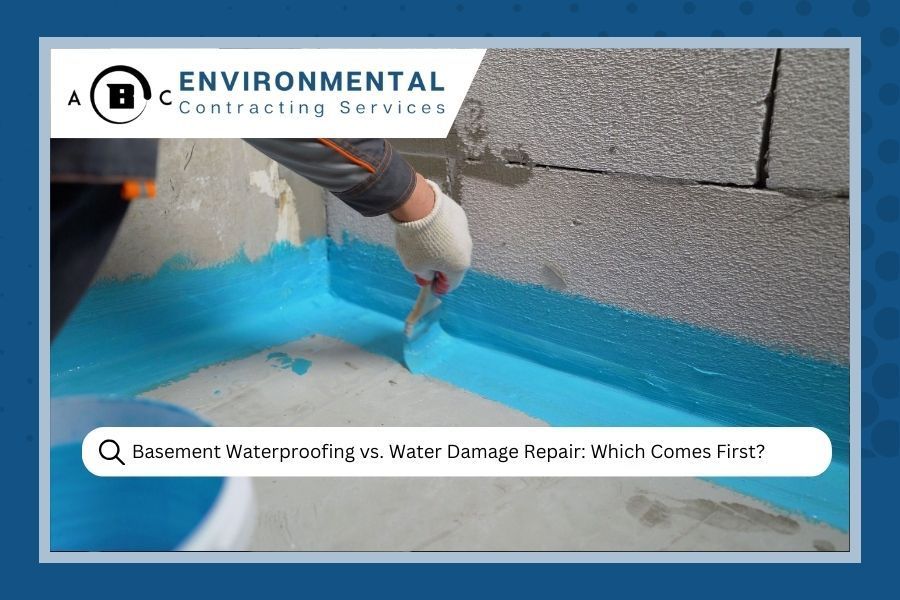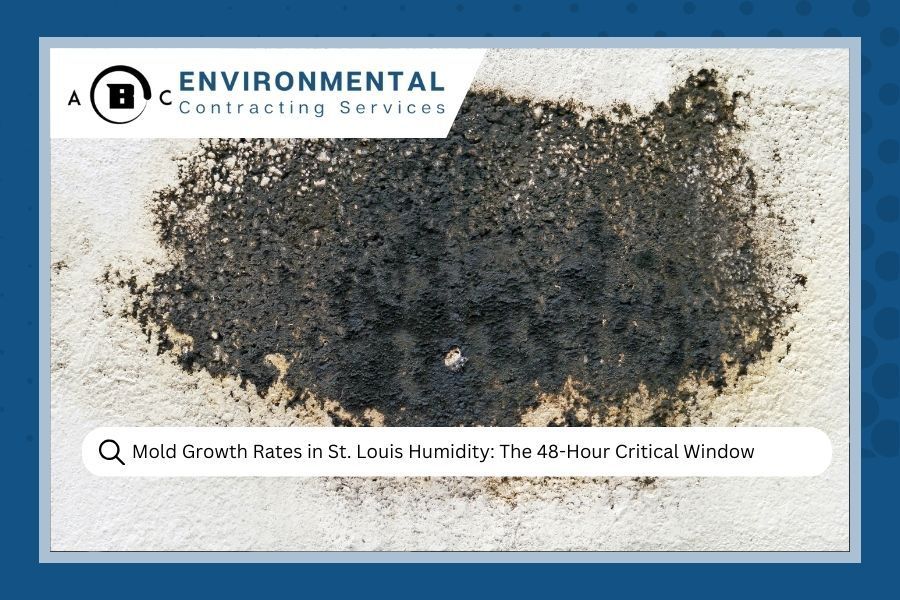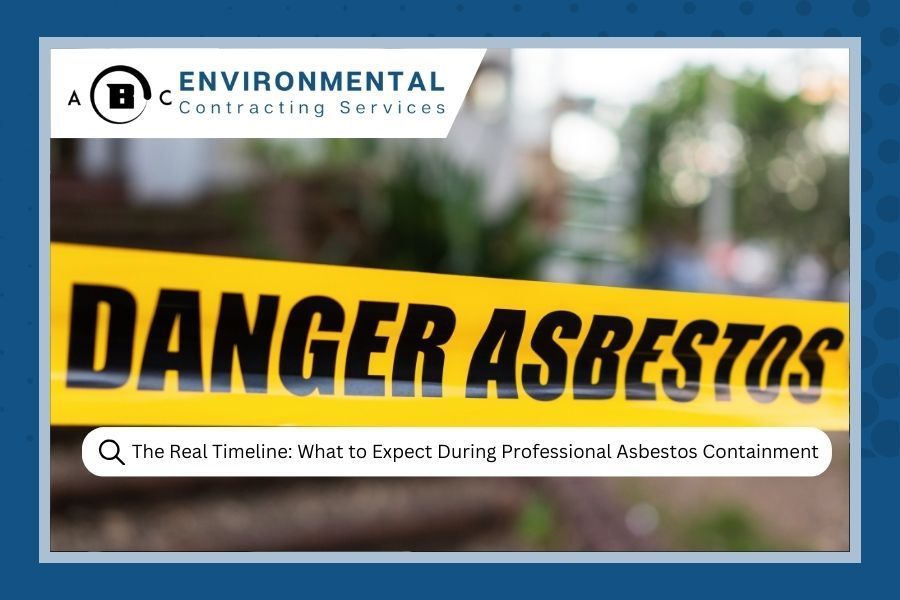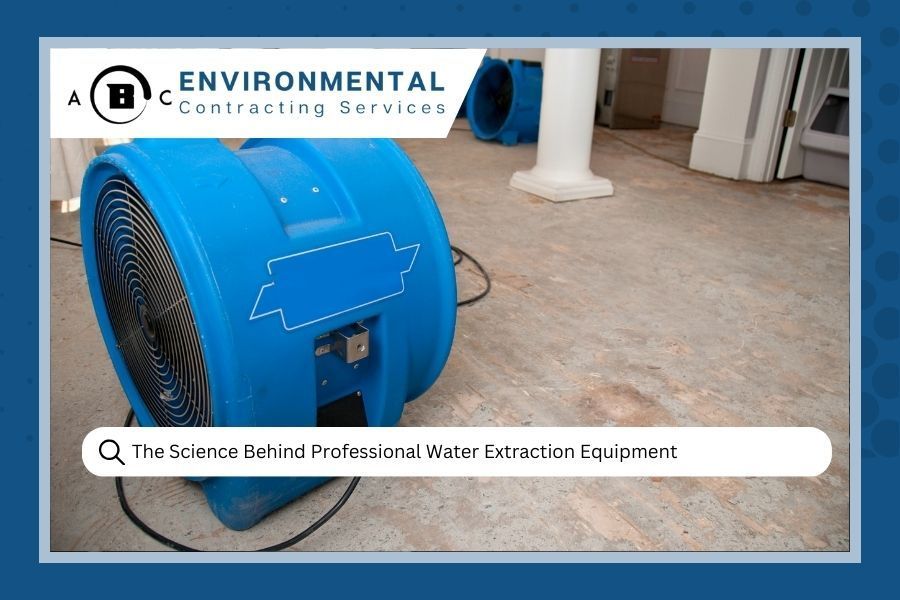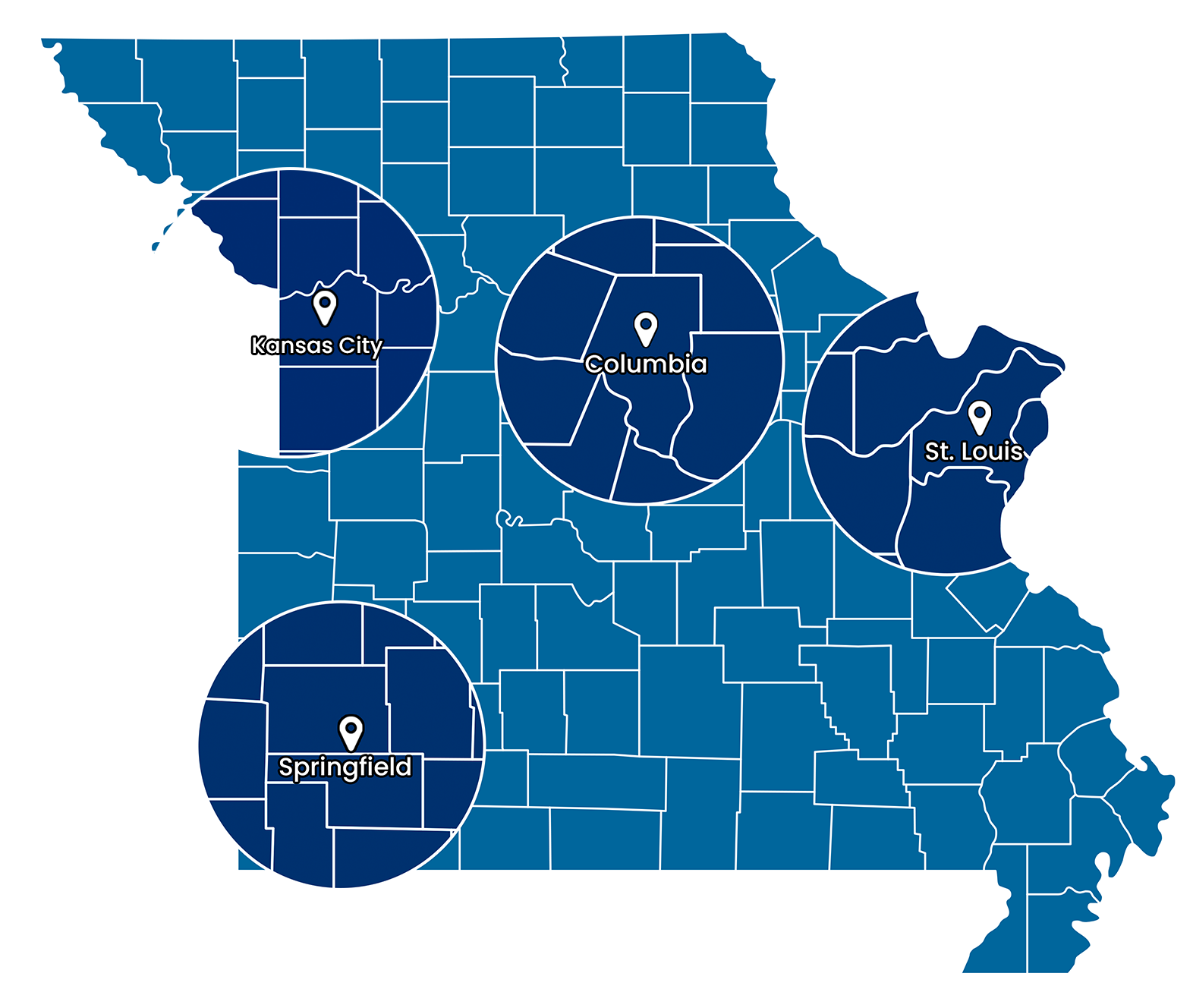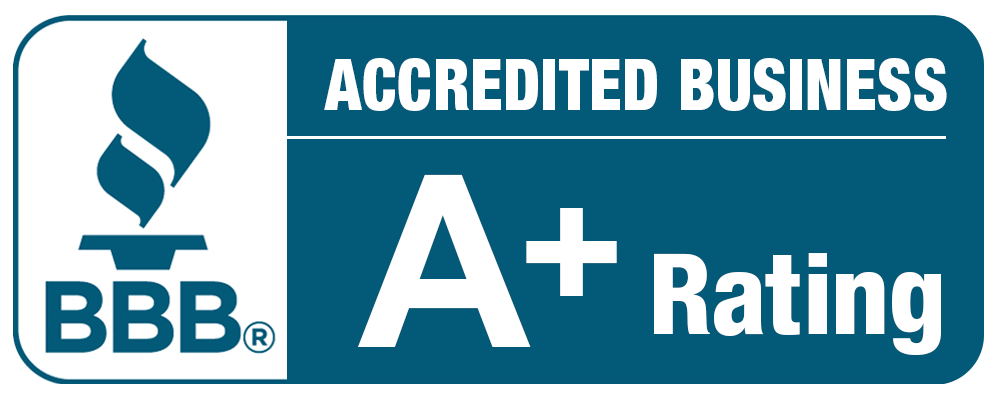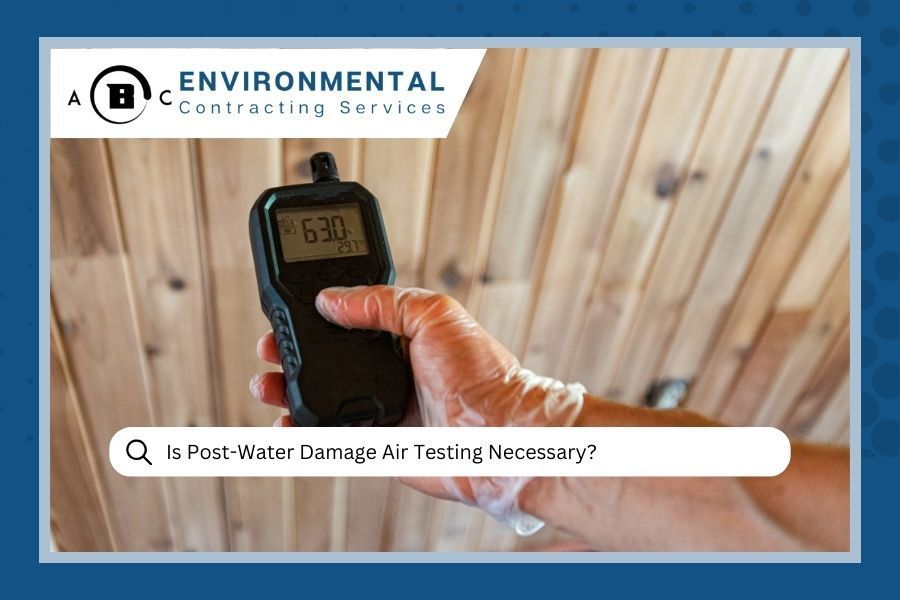
Is Professional Air Quality Testing Worth the Investment After Water Events?
Jump to Section:
- Why Air Quality Gets Messy After Water Events
- The Hidden Health Risks Nobody Talks About
- What Professional Air Quality Testing Actually Tells You
- Testing vs. Guessing: A Real Cost-Benefit Analysis
- When Testing Makes the Most Sense
- DIY vs. Professional: What You Need to Know
- What the Testing Process Actually Looks Like
- Making the Decision: Questions to Ask Yourself
- Beyond Testing: The Complete Air Quality Picture
- What We've Learned from 20+ Years in St. Louis
When your St. Louis home gets hit with water damage from a burst pipe, sump pump failure, or that surprise basement flood we all dread, your first thought is probably "get this water out fast." And you're absolutely right. But here's what a lot of homeowners don't think about until later: what's floating around in the air after the water's gone?
At ABC Environmental Contracting Services, we get asked about air quality testing all the time. And honestly? It's one of those things that can feel like an extra expense when you're already dealing with water damage restoration costs. But after helping Missouri families for over 20 years, we've seen firsthand why this step can make all the difference between a truly clean home and one that's harboring invisible problems.
🚨 Need Immediate Help?
Ready to ensure your family's safety after water damage? Call ABC Environmental Contracting Services at (314) 668-1509 for comprehensive water restoration and air quality solutions in the St. Louis area.
Why Air Quality Gets Messy After Water Events
Let's be real here: when water invades your home, it doesn't come alone. Whether it's from storm flooding, a broken appliance, or sewage backup, that water picks up all sorts of stuff on its journey. We're talking bacteria, fungi, chemical residues, and microscopic particles that love to hang out in your indoor air long after the visible mess is cleaned up.
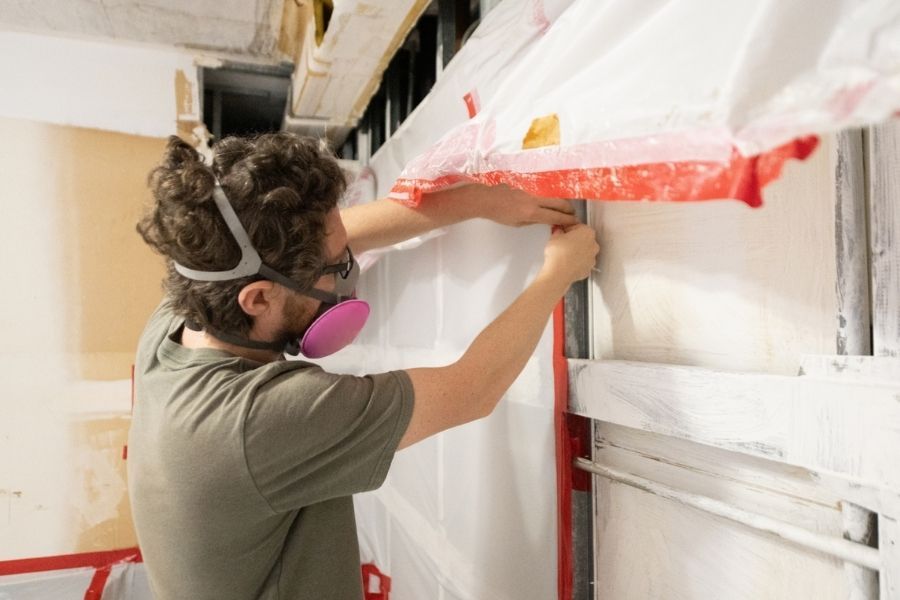
Here in Missouri, we deal with some specific challenges. Our basements are perfect breeding grounds for moisture issues, especially after those surprise spring storms that seem to come out of nowhere. Plus, many of our older homes in the St. Louis metro weren't built with modern moisture barriers, which means water can seep into places you'd never think to check. That's why asbestos removal sometimes becomes part of the equation when older building materials get water damaged.
The Hidden Health Risks Nobody Talks About
This is where things get serious, and we don't mean to scare you, but we do want you to have the facts. Poor indoor air quality after water events can trigger a whole range of health issues that might not show up immediately:
Respiratory Problems
Even if you don't see mold growing (yet), microscopic spores can be floating around your home. For folks with asthma, allergies, or other breathing issues, this can mean weeks or months of unexplained symptoms.
Chemical Contamination
Depending on where that water came from, you might be dealing with cleaning chemicals, sewage contaminants, or runoff from outside. These can create volatile organic compounds (VOCs) that aren't great to breathe day after day.
Long-term Exposure Issues
Here's the thing that really gets us: families living with poor air quality often don't realize that's what's causing their headaches, fatigue, or mystery illnesses. They just think they're having a rough patch.
What Professional Air Quality Testing Actually Tells You
Professional testing isn't just someone waving a gadget around your house and calling it good. When done right, it gives you a detailed picture of what's actually in your air. Here's what we typically test for:
Mold and Fungal Spores: Even invisible amounts can cause problems, especially for sensitive individuals.
Bacterial Contamination: Particularly important after sewage backups or flooding from outside sources.
VOC Levels: These chemical compounds can come from water damage to building materials, furniture, or flooring.
Particulate Matter: Tiny particles that can irritate lungs and airways.
Humidity Levels: High moisture creates the perfect environment for ongoing problems.
The EPA provides detailed guidance on indoor air quality that explains why these measurements matter so much for your family's health.
🕐 Air Quality Testing Timeline After Water Damage
0-24 Hours: Emergency Response
Focus on water extraction and preventing further damage. Air quality testing not yet recommended.
24-48 Hours: Initial Assessment
Ideal time for baseline air quality testing to identify immediate contamination concerns.
3-7 Days: Monitoring Period
Watch for signs of mold growth or persistent odors that indicate ongoing air quality issues.
Post-Remediation: Final Verification
Test again 24-48 hours after restoration work is completed to confirm safe air quality levels.
Testing vs. Guessing: A Real Cost-Benefit Analysis
Let's talk numbers, because we know you're thinking about them. Professional air quality testing in the St. Louis area typically runs between $300-$800, depending on the size of your home and complexity of testing needed.
Sounds like a chunk of change, right? But here's the thing: we've seen families spend thousands on medical bills, air purifiers, and repeated cleaning attempts because they were trying to solve problems they couldn't see or properly identify.
One family we worked with in Chesterfield kept dealing with respiratory issues for months after what seemed like a "minor" basement water incident. They spent over $2,000 on air purifiers, dehumidifiers, and doctor visits before discovering they had hidden mold behind their finished basement walls. A $500 air quality test upfront could have saved them time, money, and a lot of frustration. This kind of situation is exactly what we covered in our recent article about common plumbing issues that lead to water damage.
| Approach | Initial Cost | Potential Hidden Costs | Peace of Mind |
|---|---|---|---|
| Skip Testing | $0 | $2,000-$10,000+ in health bills, failed remediation attempts | Low |
| DIY Testing | $50-$150 | $500-$3,000+ if results are inaccurate or incomplete | Medium |
| Professional Testing | $300-$800 | Minimal - targeted remediation based on accurate results | High |
When Testing Makes the Most Sense
Not every water event needs professional air quality testing, but some situations definitely call for it:
After sewage backups or contaminated flooding- This one's non-negotiable in our book. Sewage brings bacteria and pathogens you definitely don't want lingering in your air.
When you suspect hidden moisture- If you're noticing musty odors, feel like humidity levels are off, or see signs of water damage in hard-to-reach places. We see this a lot after appliance malfunctions that cause water damage.
If anyone in your household has respiratory issues- Asthma, allergies, compromised immune systems, or chronic respiratory conditions make air quality extra important.
Before and after major remediation work- Testing before work begins establishes a baseline, and post-remediation testing confirms the job was done right.
When insurance requires documentation- Some insurance companies want proof that air quality has been restored to safe levels.
Get Professional Water Damage AssessmentDIY vs. Professional: What You Need to Know
We get it, there are home testing kits available that cost way less than professional testing. And for some situations, they might give you a general idea of what's going on. But here's where they fall short:
Home kits usually only test for one or two things (like mold), while professional testing looks at the complete air quality picture. Plus, the sample collection process matters a lot. If it's not done right, you could get results that are completely off base.
Professional testing also comes with proper interpretation of results and recommendations for what to do next. A DIY kit might tell you there's mold present, but it won't tell you if the levels are actually dangerous or what specific type you're dealing with.
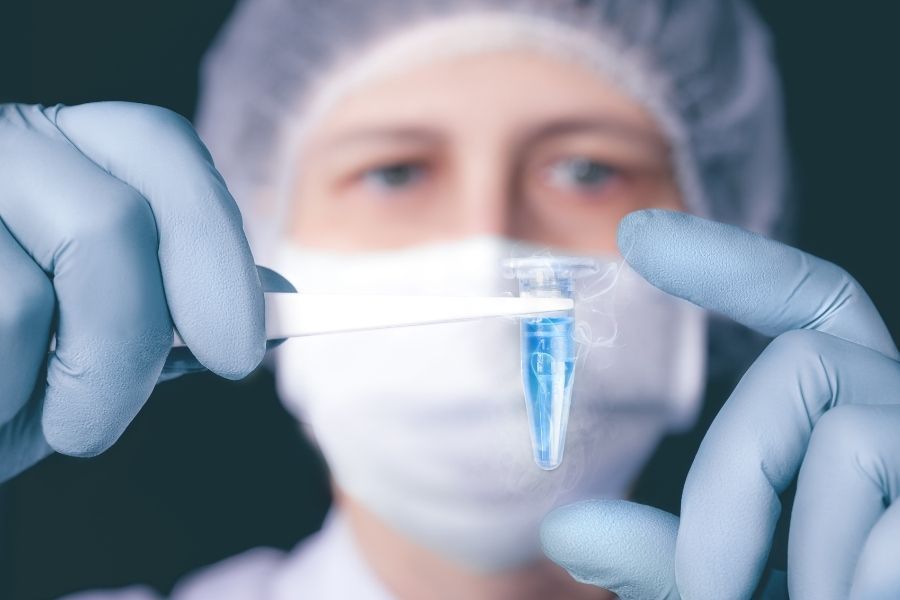
What the Testing Process Actually Looks Like
When we bring in air quality specialists (because yes, we work with certified indoor air quality professionals), here's typically what happens:
1. Visual Assessment: They'll look for obvious moisture sources, visible mold, or other air quality concerns
2. Air Sampling: Using calibrated equipment to collect air samples from different areas of your home
3. Surface Sampling: If there are suspect areas, they might take samples directly from surfaces
4. Environmental Measurements: Humidity, temperature, and other factors that affect air quality
5. Lab Analysis: Samples go to certified labs for detailed analysis
6. Results and Recommendations: You get a comprehensive report with specific recommendations
The whole process usually takes a few hours, and you'll have results within 3-5 business days.
Making the Decision: Questions to Ask Yourself
Still on the fence? Here are some questions that might help you decide:
- Are you planning to stay in this home long-term? (If yes, air quality becomes more important)
- Does anyone in your family have health sensitivities?
- Was the water event significant or potentially contaminated?
- Are you noticing any unexplained health symptoms since the water event?
- Do you have adequate insurance coverage that might help with costs?
- Are you dealing with a property you're trying to sell or rent?
Beyond Testing: The Complete Air Quality Picture
Here's something we always tell our clients: testing is just the first step. If testing reveals problems, you'll need a plan to fix them. This might include:
- Additional Drying and Dehumidification: Sometimes moisture lingers in places standard cleanup missed.
- Mold Remediation: If testing reveals problematic mold levels, professional mold removal might be necessary.
- HVAC System Cleaning: Your heating and cooling system can spread contaminated air throughout your home.
- Air Filtration Improvements: Upgrading your home's air filtration can help with ongoing air quality.
- Structural Repairs: Sometimes fixing air quality means addressing the root moisture sources.
What We've Learned from 20+ Years in St. Louis
After two decades of helping Missouri families deal with water damage, here's what we've learned: the families who invest in proper air quality assessment and remediation early on are the ones who end up spending less money and having fewer health issues in the long run. Just like we saw in our recent case study about restoring a water-damaged room in Saint Louis , addressing air quality concerns early prevents bigger problems down the road.
We've also learned that every situation is different. A burst pipe in a newer home with good ventilation is very different from a sewage backup in a 1920s basement with poor airflow. That's why we always recommend talking through your specific situation with professionals who understand both water damage and indoor air quality.
The bottom line? Professional air quality testing isn't always necessary, but when it is, it's absolutely worth the investment. Think of it as insurance for your family's health and your home's long-term value.
Your Next Steps
If you're dealing with water damage aftermath in the St. Louis area and wondering about air quality testing, don't let uncertainty eat at you. Give us a call at ABC Environmental Contracting Services. We can walk you through your specific situation and help you make the best decision for your family and your budget. Our St. Louis service area covers the entire metro region, so we understand the unique challenges local homeowners face.
We work with certified indoor air quality professionals and can coordinate testing as part of your overall water damage restoration. Because at the end of the day, we want you to feel confident that your home is not just dry, but truly safe and healthy for your family.
Frequently Asked Questions
How accurate is professional air quality testing compared to home test kits after water damage?
Professional testing uses calibrated, laboratory-grade equipment and follows strict protocols for sample collection and analysis. While home kits might detect basic mold presence, professional testing can identify specific species, concentration levels, and distinguish between normal background levels and problematic contamination. For water damage situations, this precision matters because different contaminants require different remediation approaches.
Should I test air quality before or after my water damage restoration is completed?
We typically recommend testing both before and after major restoration work. Pre-restoration testing establishes what contaminants are present and helps guide the remediation strategy. Post-restoration testing (usually 24-48 hours after work is completed) confirms that air quality has returned to safe levels. This two-step approach is especially important for insurance documentation and gives you peace of mind that the job was done right.
What specific air quality problems are most common after basement flooding in St. Louis area homes?
In our experience with St. Louis area basements, we most commonly see elevated mold spore counts (especially Aspergillus and Penicillium species), increased bacterial contamination from sewer backup situations, and elevated humidity levels that create ongoing problems. Many of our older homes also have issues with disturbed asbestos or lead particles when water damage affects pre-1980s building materials, which is why professional testing becomes even more critical.
How long do I need to wait after professional remediation before air quality returns to normal?
This depends on the extent of contamination and remediation work, but most properly remediated spaces show normal air quality within 48-72 hours after work is completed. However, we always recommend professional post-remediation testing rather than guessing. Factors like home ventilation, outdoor air quality, and the thoroughness of moisture removal all affect recovery time. Rush the process, and you might end up with recurring problems.
🏠 Protect Your Family's Health After Water Damage
Concerned about air quality after water damage in your St. Louis area home?
Contact ABC Environmental Contracting Services at (314) 668-1509 or fill out our contact form for expert guidance on water damage restoration and air quality solutions.
Our veteran-owned team is here 24/7 to help protect your family's health and your home's future.
Dan and Tina Benton are the owners of ABC Environmental Contracting Services, a veteran-owned restoration company serving the St. Louis Metro East area. Together, they bring over two decades of expertise in water damage restoration, mold remediation, and asbestos removal for both residential and commercial properties. They're committed to serving their community with integrity and dedication, providing 24/7 emergency response when disaster strikes.

